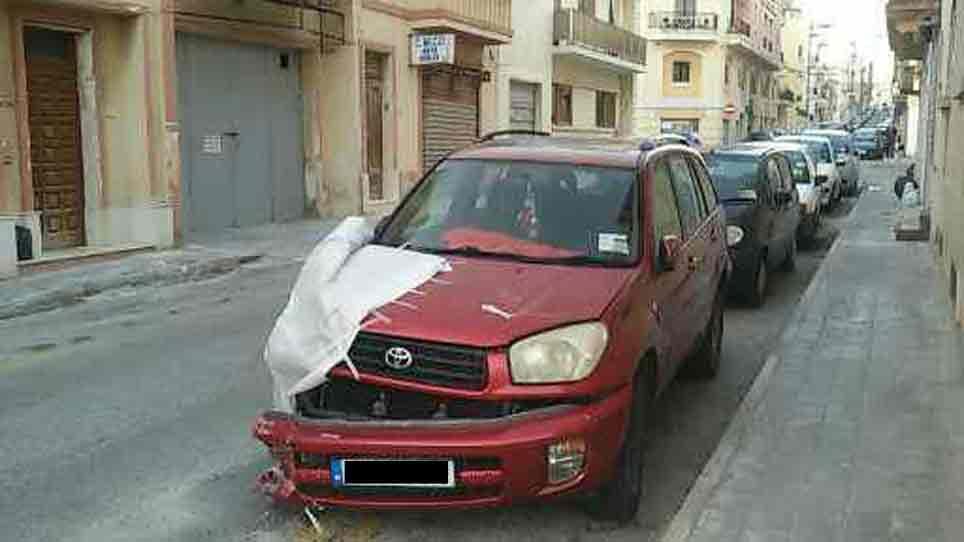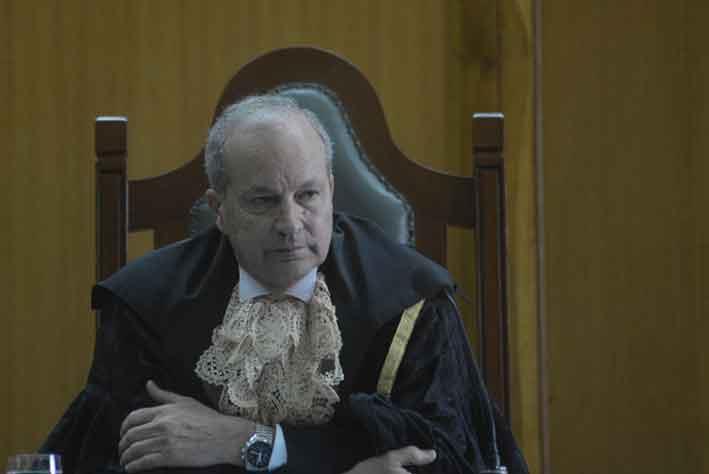The environment and planning commission will be reviewing a case today, involving a garage on Ursuline Sisters Street, Gwardamangia that was the centre of a commission against corruption case back in the 1990s where a panel beater's issued licence was meant to be revoked.
Although the Commission had asked for all licences on the site to be revoked, the police decided otherwise and, as Judge Michael Mallia described it during a case in front of the Injustices tribunal, this resulted in "a continuous injustice".
The case officer's report, in the current case, mentions the change of use from a garage to a public service garage.
Mr Frederick Attard (a resident), speaking with this paper, expressed his worry that the addition of such a licence would result in a greater inconvenience to the persons living in the vicinity than already exists.
The case went before the Commission against Corruption in 1993, where Mr Attard claimed that an application by Carmelo and Antonio Mizzi, to transfer a licence from father to son, went beyond and in fact changed the contents of the licence itself.
The original licence was granted in 1975 to Carmelo Mizzi, "to keep a workshop garage and a public service garage at 'Statesman Garage'".

During the investigation, inspector Frans Micallef made a statement, and said that "the workshop garage and a public service garage ... has been operating as a panel beater shop ever since the issuing of the original licence 42104/84".
On this point, the Commission said it was incredibly surprised that an inspector would make such a declaration without checking if the licence itself was really one for a panel beater, adding that the original licence was issued in 1975 not 1984 as the inspector declared.
The Commission said that inspector Micallef, instead of making the declaration, was duty bound to inspect the garage. The report states that inspector Micallef never said that Carmelo Mizzi had a panel beater's licence, however used an ambiguous statement - "has been operating as panel beater shop ever since the issuing of the original licence". If this were true, then the inspector was duty-bound to take criminal action against Carmel Mizzi for doing such work without a licence, the Commission said.
The Commission reviewed the 1992 licence transfer application, from Carmelo to his son. It turned out, however, that the Trading Licences Office sent a form to the Planning Area Permits Board (PAPB) to inform them that an application was filed by Mizzi to transfer the licence - "to keep a workshop garage and to act as a panel beater and to keep a public service garage" - also requested the removal of public service garage and instead be replaced by "the operating of one oxyacetylene welding set".
The Commission observed that this was not a simple transfer of a licence, but rather involved a "radical change". At the same time, the PAPB technical officer who had to examine the site in question could not trace the garage, yet it was still approved, the report read.
The Commission noted that there are no indications that the neighbours, at any point, were consulted in order to give their consent or object to the requested permission.

"In the opinion of the Commission, the facts show a serious failure on behalf of the Police, as well as the PAPB, who closed their eyes to a number of factors".
Mr Attard, the resident, was interviewed by the Commission and said that he himself was present when police raided the garage in 1986 and caught the workers spraying a car red-handed. He said that the case was not taken to court.
The Commission's report concluded that all licences on the garage be immediately revoked, that the 'ambiguous declaration' by Inspector Micallef be investigated, and how the PAPB granted permission for such use of this garage without an Officer in Charge report be investigated.
Further to this, the case was heard in front of the investigations and injustices tribunal in 2005, presided over by Judge Michael Mallia.
Instead of obeying the Commission's decision, the Police Commissioner (George Grech) agreed with the Police Licences Appeals Tribunal (where the case passed through following the Commission) and went against the Commission, allowing the licence to remain. Judge Mallia called this a deliberate act of contempt against the Commission, "which has resulted in a permanent injustice against the applicants".

The Tribunal noted that the Police Commissioner thought he was moving according to law when he brought the case before the Police licences Appeals Tribunal which decided against the Commission and that a licence under special conditions be issued in November 2000. "The Tribunal believes that this measure should have been taken before the Commission's decision and not after, thus meaning that they had no alternative but to stay on the Commission's orders and immediately revoke the licence". The judgement read that the Commission's decisions were and are still valid.
The Tribunal added that the existence of the licence will continue to cause injustice until the Police Commissioner decides to follow the Commission's orders. However the Tribunal, after lambasting George Grech, could not provide any remedial legal alternatives, including damages incurred due to the parameters of the same Injustices law.
A letter seen by this newsroom details an explanation as to why no action was taken by the police. The police, in the letter, state that they sought advice from the Attorney General, who, in a written opinion, did not agree with the Commission. The police said that the AG advised that the interpretation provided by Frans Micallef was correct in fact and in law, and mentioned that the Commission did not give him a chance to be heard out, which he had a right to be. As such, the police chose to keep the status quo. Although the commencement of some criminal proceedings requires the authority of the AG, the AG has no authority to compel the police to revoke a licence or to take a case to court.
Turning back to the current application, the Planning Directorate noted that there are three commercial garages currently in use. The Commission, during its investigation, had mentioned the breach of licence conditions, and to this day, Mr Attard says, cars are being worked upon in the road against licence conditions.